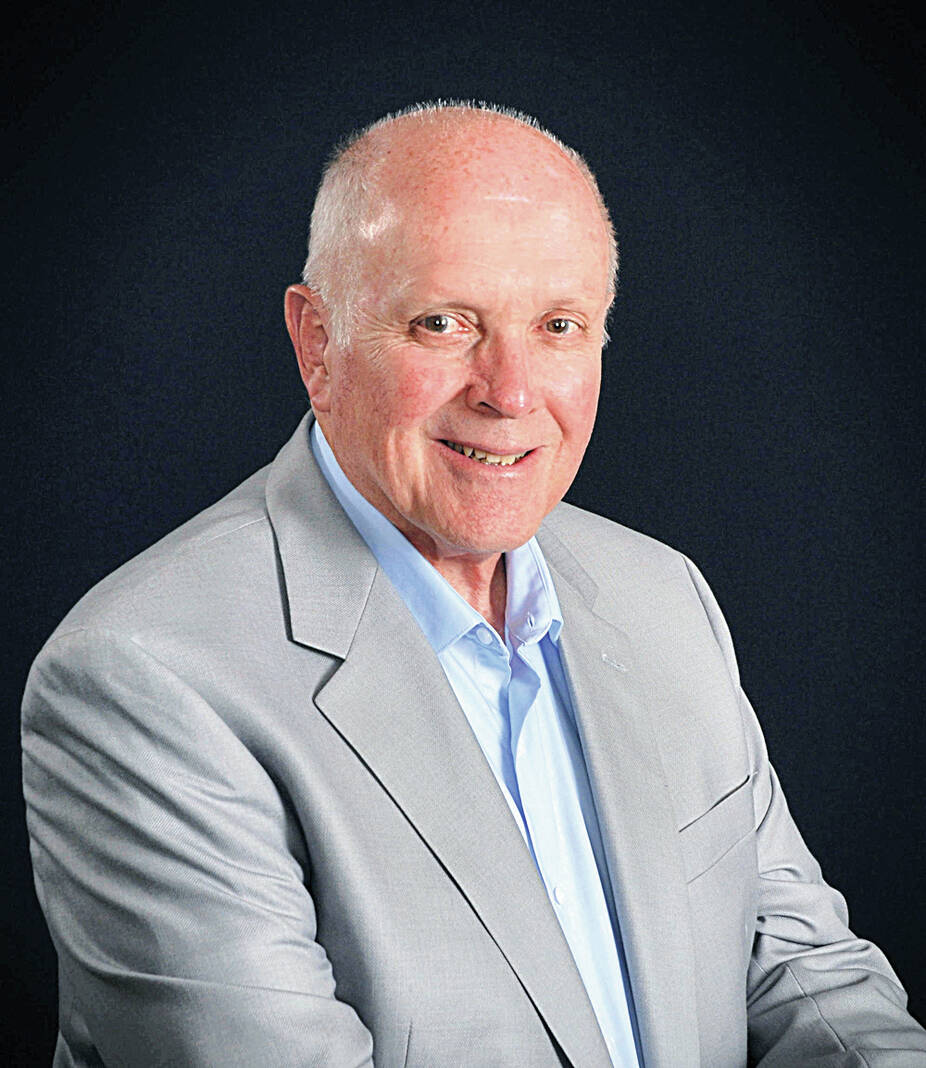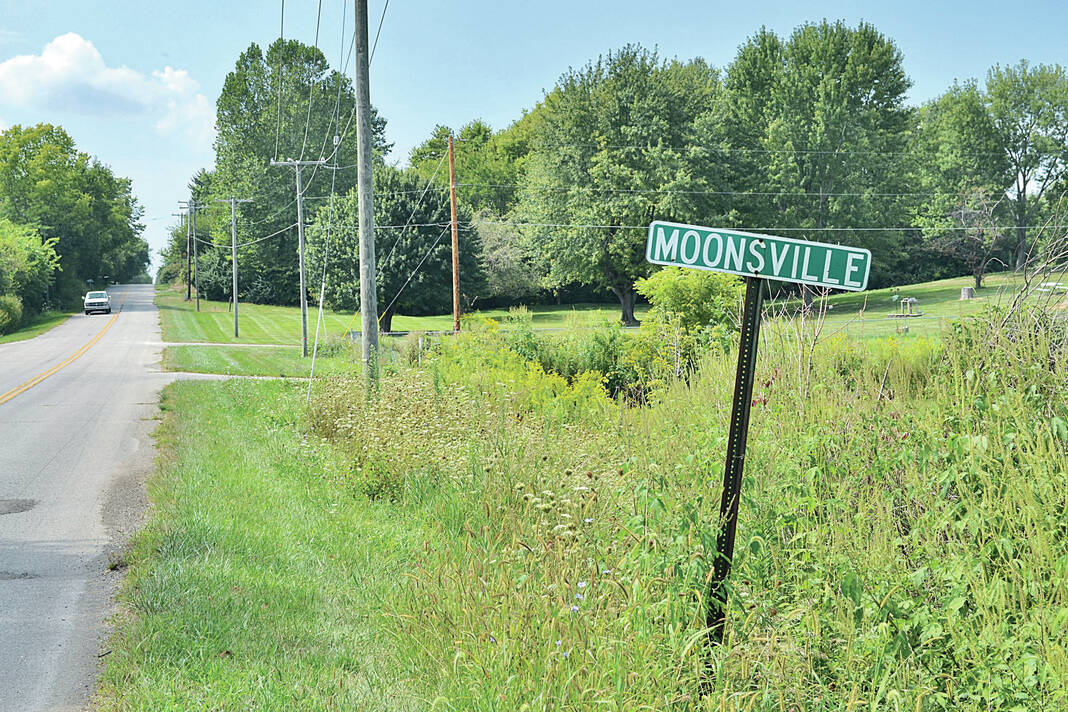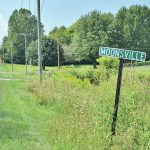
Stephen Jackson

Some preferred calling the town Moonville, but the historical record — like the street sign above — shows there’s an “s” in the name.
Submitted photo
By Stephen Jackson | For The Times-Post
With the coming of steam-operated mills, which could be located wherever the owners chose, the old water-powered mills were dismantled and allowed to fall into ruins.
All of this activity brought people and the establishment of communities, none of which ever grew to any significant size.
The oldest was Moonsville, laid out by Zimri Moon in 1835.
Between 1838 and 1840, there was a heightened level of activity brought about by the construction of the nearby Indiana Central Canal.
It was speculated the canal would be an economic boon to the new village, but with the suspension of canal construction in 1839-40, Moonsville declined.
Over time the name has been a subject of debate.
Some called it Moonville, while others preferred the plural, Moonsville.
The finding for the latter was decided with the discovery of the town’s original plat map.
On Dec. 19, 1834, Ninevah Berry, surveyor of Madison County, drew the plat for “Moonsville” as directed by Zimri Moon.
The recording of this plat did not take place until May 7, 1835.
The heading of the plat distinctly bears the title “Town of Moonsville,” thus settling the debate.
 Some preferred calling the town Moonville, but the historical record — like the street sign above — shows there’s an “s” in the name.
Some preferred calling the town Moonville, but the historical record — like the street sign above — shows there’s an “s” in the name.
Submitted photo
About 1838, the village of Pittsborough was laid out by John Beal and others on the state road.
It was immediately north of the present site of Prosperity.
Several lots were sold soon after the town was laid out, as the records of the county commissioners’ court for the 1839 March term show.
It was a canal town, and Jeremiah Judd was licensed to sell groceries and liquors for the year 1839.
The old settlers used to tell of the fights that occurred among the canal diggers, especially upon or immediately after pay day.
There were several stores and residences, most of them log structures common to that period.
When the canal was abandoned most of the inhabitants moved on, and Pittsborough ceased to exist.
Immediately south of there, at the intersection of County Road 500 North and the old state road, was another canal town.
Prosperity was founded by John Beal and Hiram Louder on the speculation that better times were ahead with the planned Indiana Central Canal Construction passing nearby.
For a time the village flourished, which is probably responsible for that name.
When the Anderson and Alexandria Turnpike was built in 1858 utilizing a portion of the old state road, a toll gate was placed there and fees were collected to defray the cost of needed road improvements.
The death of the canal was a severe blow to the village, the discontinuance of the post office on Aug. 6, 1875, added to the decline, and with the inauguration of the free gravel road system even the toll gate was abolished.
Prior to the construction of State Road 9 in the late 1930s, passenger buses used Alexandria Pike as a main thoroughfare north out of Anderson.
During the Great Depression, bus drivers nearing the town would give their passengers a sense of hope by announcing “Folks, we are now entering Prosperity.”
Mount Pleasant was situated in the neighborhood of the Dill and Thornburg farm, adjoining the Jacob Bronnenberg land.
It was located about where the Bethany Pointe Health Campus on Bethany Road is today.
Also a result of the planned canal, it came too late in the days of canal fever, as the work on the canal had been abandoned in 1839, the year Mount Pleasant was laid out.
John Thornburg built the only house there.
Finally, the area at the intersection of County Road 400 North and County Road 100 East acquired the name College Corner, where a one-room school house was built on the southeast corner in 1884.
Presumably, it was named in recognition of a place of learning.
It eventually would be one of three one-room school houses in Madison County bearing that name.
Madison County Historian Stephen Jackson is leading a series of “First Sunday” presentations covering the history of Madison County townships. The talks are set for 2 p.m. on the first Sunday each month in the Bowman Room at Museum of Madison County History, 11 W. 11th St., Anderson. The talks began Sept. 4 and run through Nov. 5, 2023. The information he prepares for those presentations form the basis of this series of columns in The Times-Post.